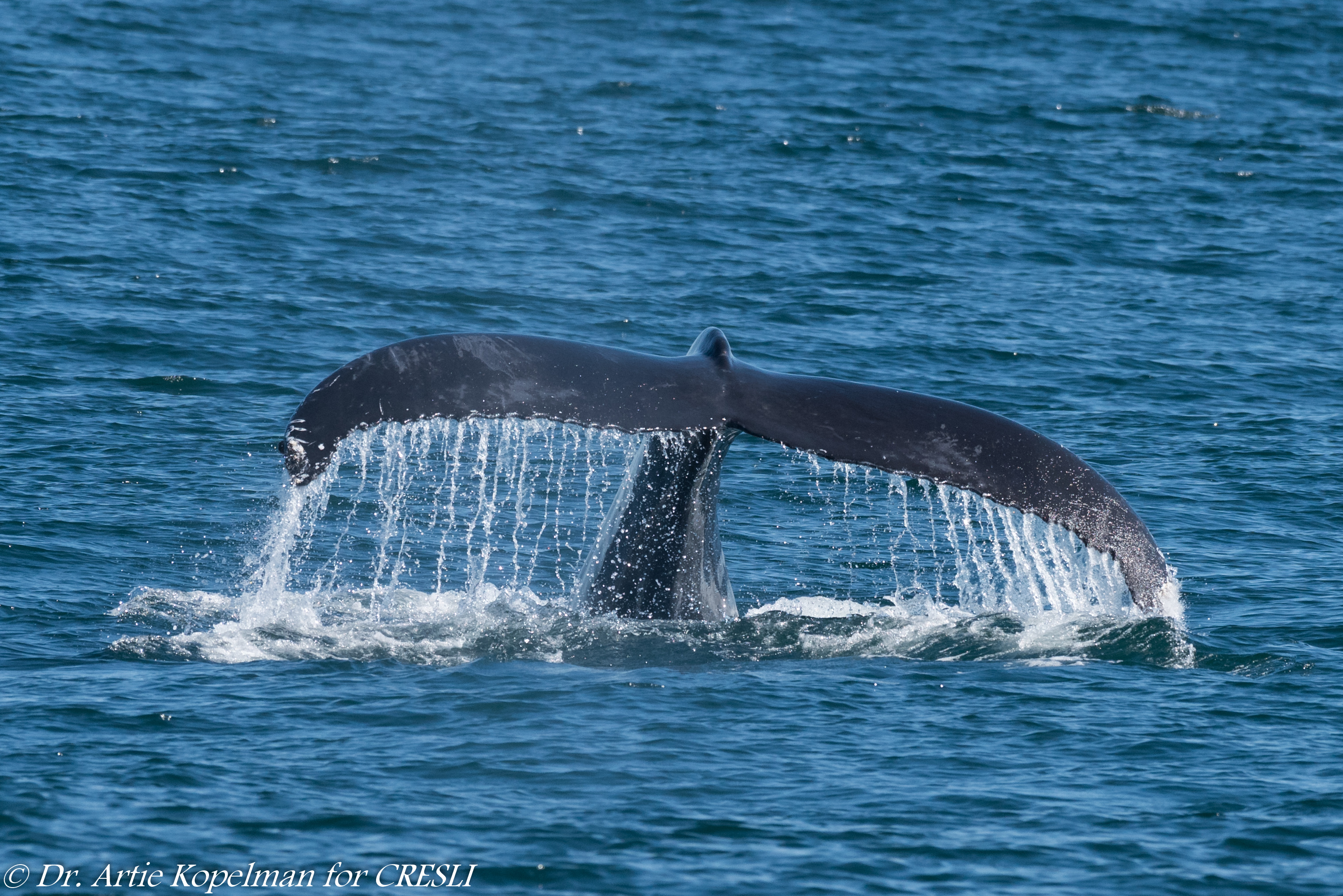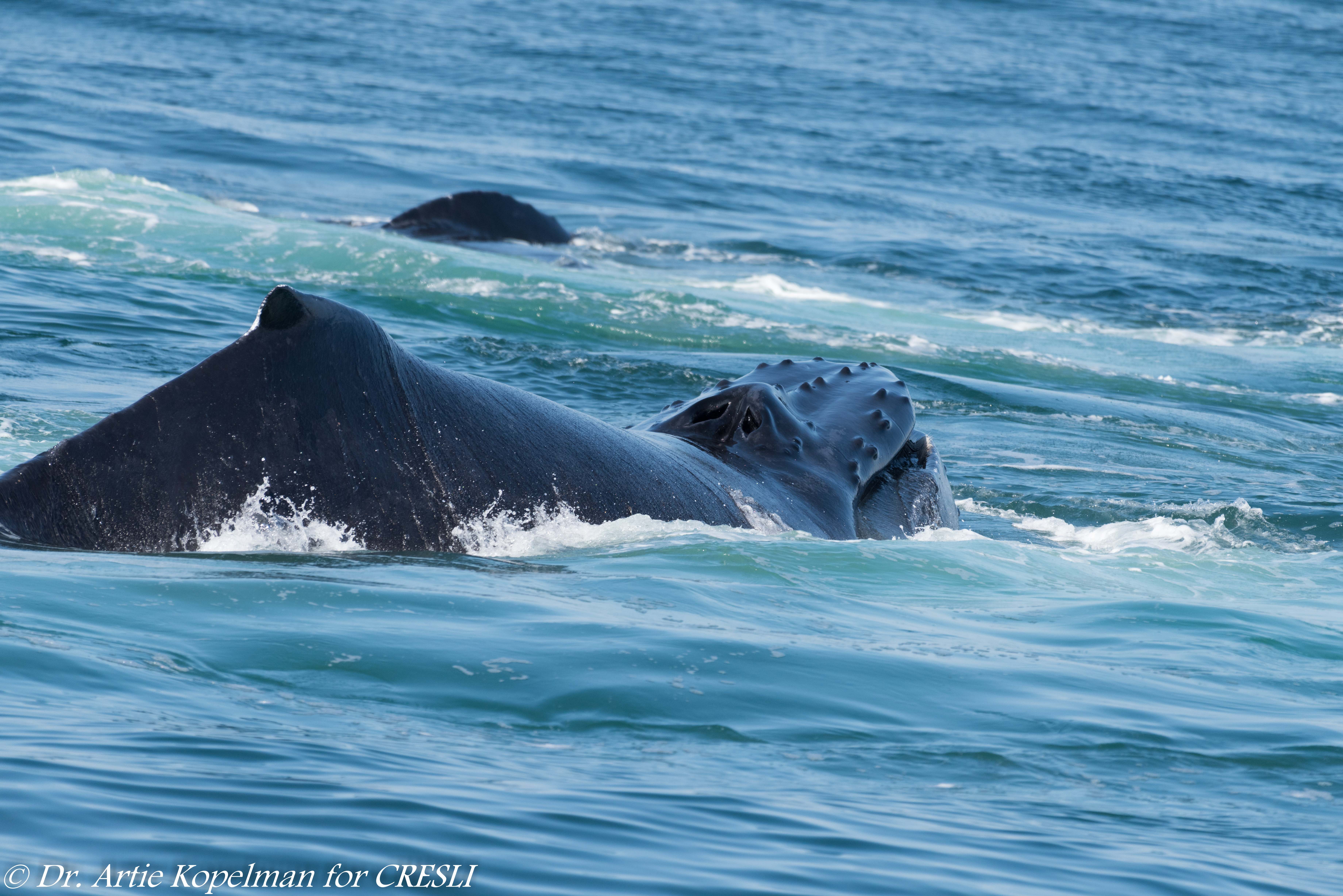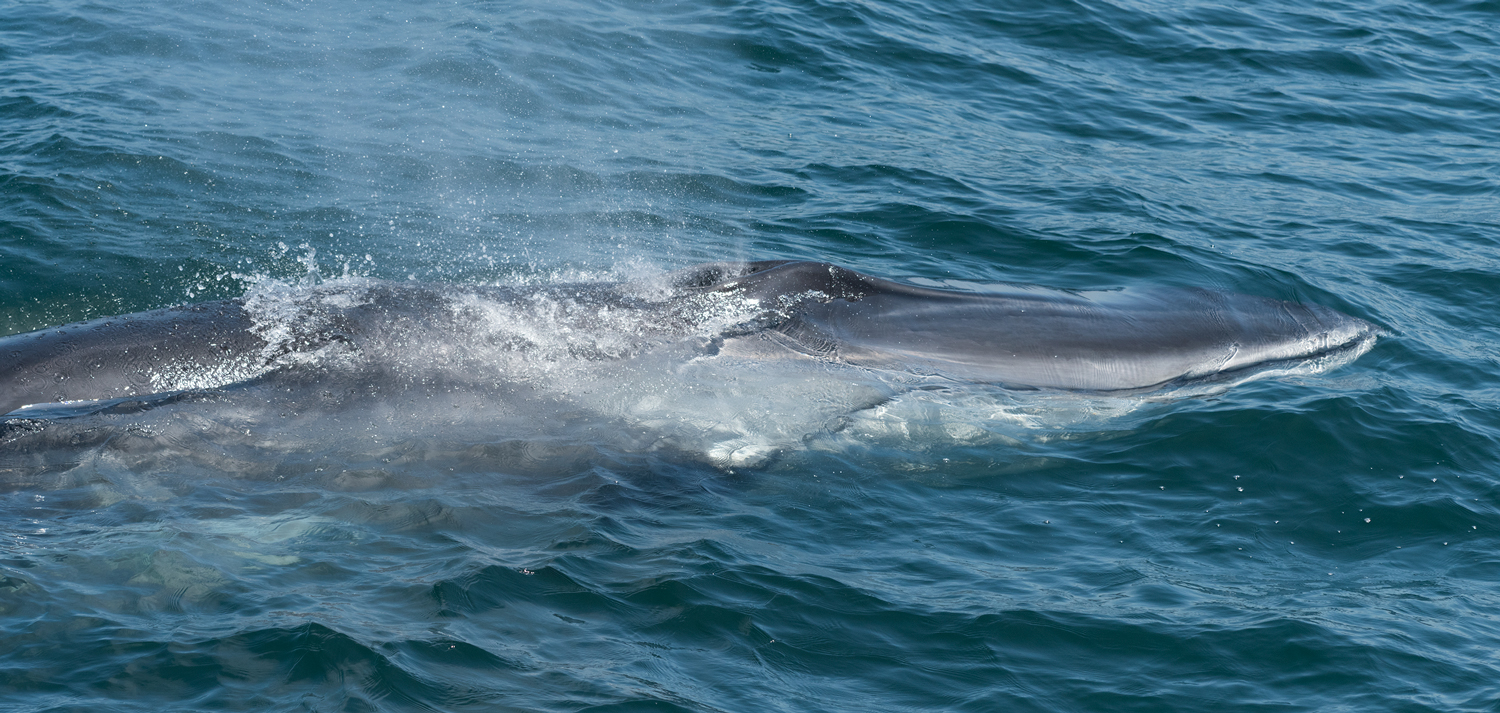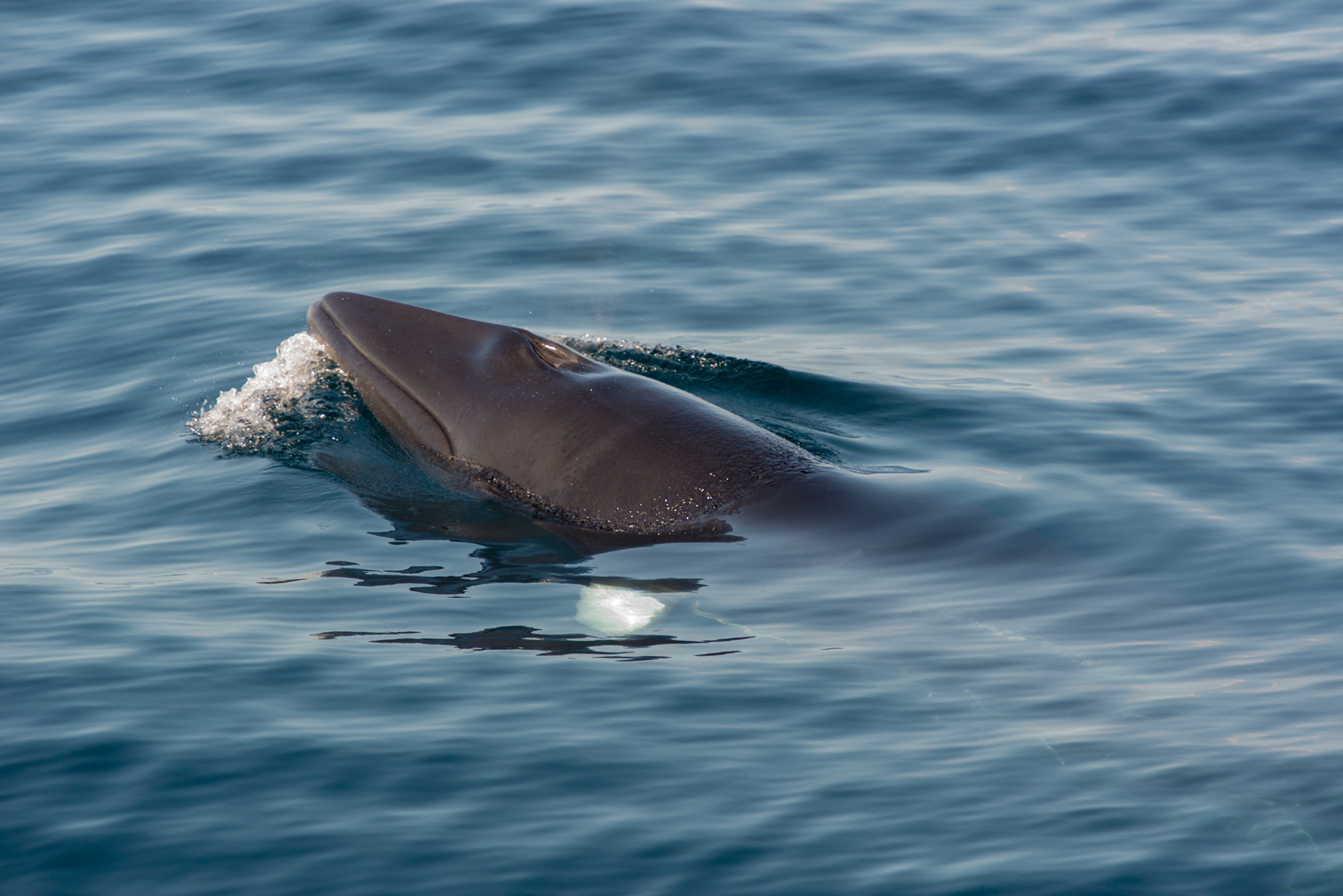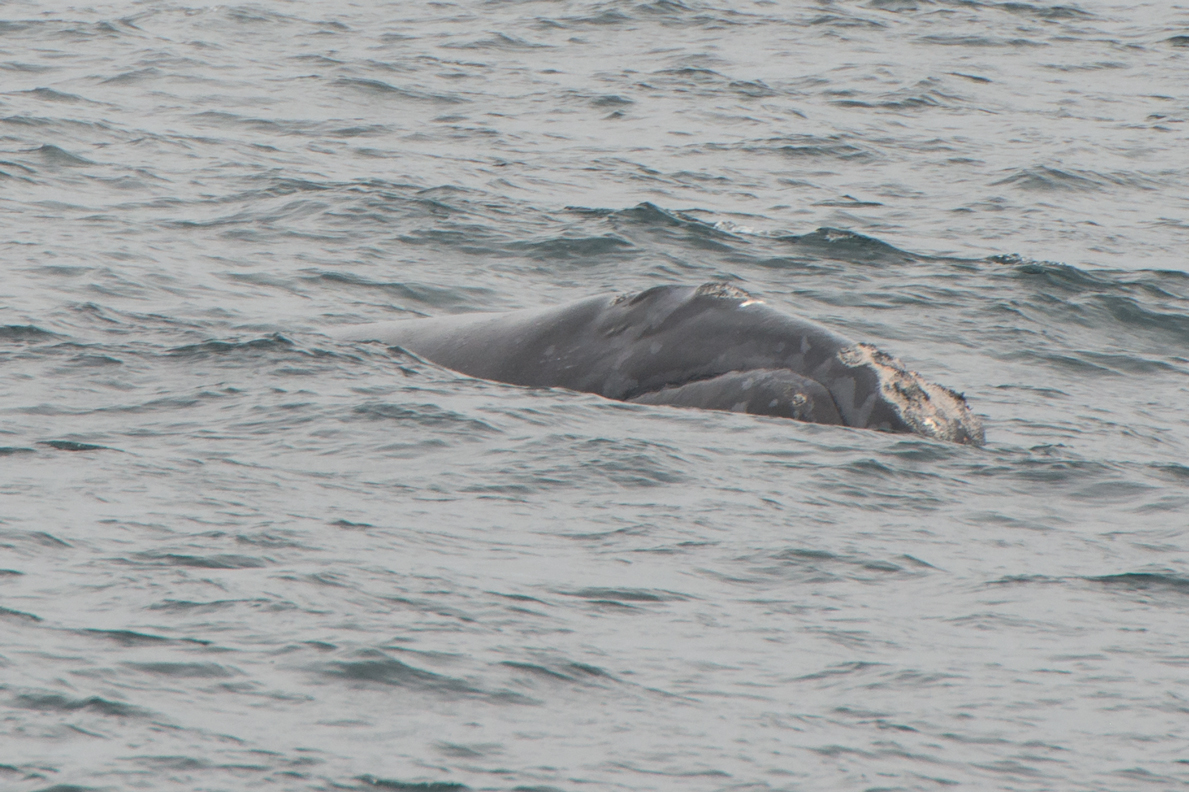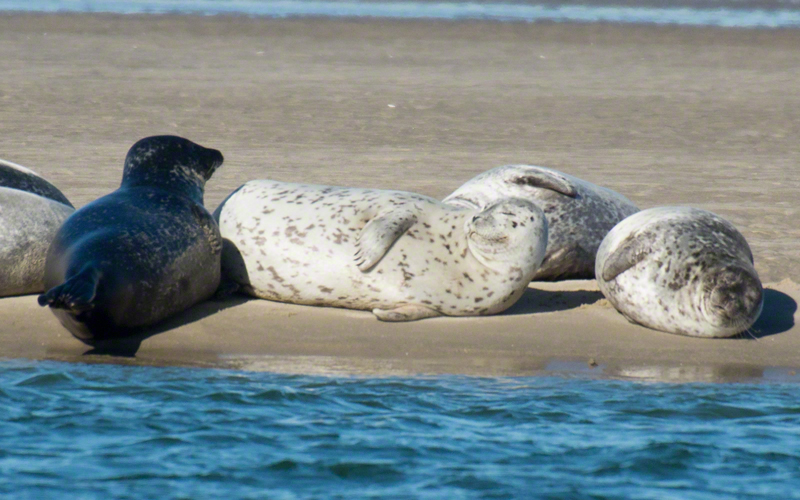Watching Whales
What to expect and what to bring?
By: Arthur H. Kopelman, Ph.D.
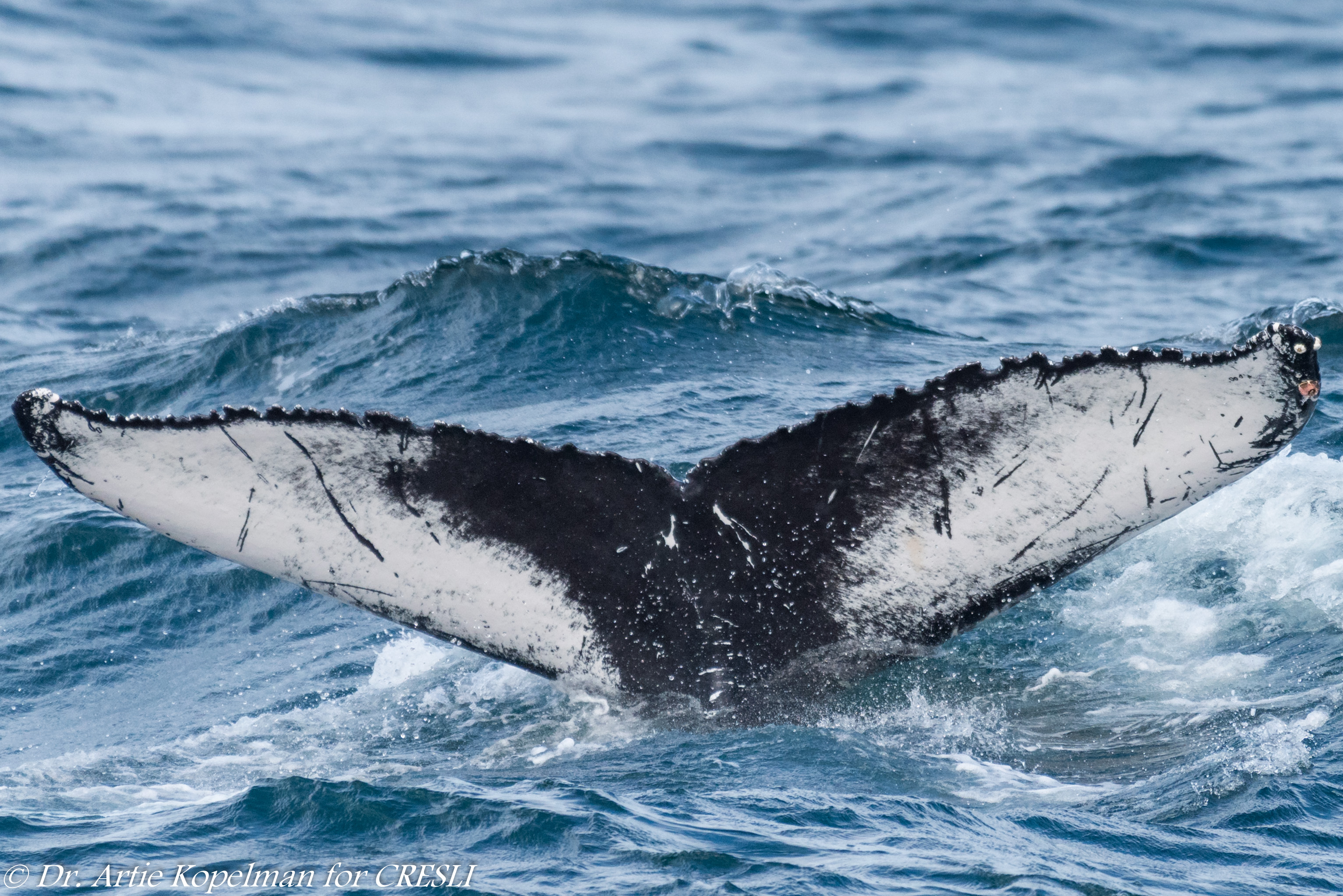
Latest CRESLI whale watching trip information and reports:
- Local
- Offshore
 The Viking Fleet and CRESLI are proud participants in the National Oceanographic and Atmospheric Administration’s Whale SENSE program. This voluntary program ensures that participating whale watch companies comply with NOAA Fisheries Greater Atlantic whale watching guidelines to prevent harassment of marine mammals. This includes slowing down, managing our time near whales and dolphins, and alerting NOAA of any entangled, ship struck, injured or diseased whales encountered. We are thrilled to be Whale SENSE’s 50th partner and promoting responsible whale watching and stewardship of the marine environment.
The Viking Fleet and CRESLI are proud participants in the National Oceanographic and Atmospheric Administration’s Whale SENSE program. This voluntary program ensures that participating whale watch companies comply with NOAA Fisheries Greater Atlantic whale watching guidelines to prevent harassment of marine mammals. This includes slowing down, managing our time near whales and dolphins, and alerting NOAA of any entangled, ship struck, injured or diseased whales encountered. We are thrilled to be Whale SENSE’s 50th partner and promoting responsible whale watching and stewardship of the marine environment.
Meet the CRESLI naturalists/educators
What should you bring on the whale watch?
- You will be on a moving vessel, yes it will rock, but we won't go out if conditions don't warrant it (i.e., dense fog, strong winds, severe weather, and seas greater than 7 feet).
- Be sure to keep your camera away from sea spray, that is, keep it contained until we get near wildlife. Have a towel to wipe off your camera; have lens cloth; protect the front of your lens with a neutral density or UV filter
- You should be prepared for a variety of weather conditions.
- Have several layers of warm clothing (particularly early in the season) available; have foul weather gear available.
- It's always better to be a "MORE-ON" than a "LESS-ON", i.e., you can always take off layers of clothes if you are too warm, but if you are cold, it's hard to add layers that you don't have.
- Have several layers of warm clothing (particularly early in the season) available; have foul weather gear available.
- Shoes ... strong, sturdy, flat, non-skid, rubber-soled.
- A hat ... under cold conditions much body heat is lost through your head. During warm weather a hat is needed to protect you from the sun, rain, etc..
- Sun screen ... that blocks UVa and UVb. VERY IMPORTANT!
- Sun glasses ... VERY IMPORTANT!
- Sea-sick medication .... If you are prone to motion sickness, take medication well before coming on board
- Camera
- Binoculars
- The vessel has a full galley with food and drinks for purchase, but also feel free to bring your own.
Precautions to prevent or reduce motion sickness?
- Do not think about getting seasick. You're on a safe vessel and like any other vessel, it may move in many directions at once. Keep your eyes looking out over the horizon and stay outside.
- Make sure that you have some layers to put on in case you get cold
- Make sure that you’ve eaten well before coming on board. Bring pretzels, crackers, other doughy food to eat if queasy,. Bring liquid with electrolytes (or fresh fruit) to replace electrolytes lost if throwing up
- Take appropriate medication well prior to coming on board. There are over the counter meds, and speak with your physician about a prescription for Scopolamine Transdermal patch
- Stay on the lower deck in the back ½ of the vessel; keep your eyes out on the horizon; DO NOT GO INTO THE CABIN if you aren’t feeling well, you’ll only feel worse
What might we see?
- Humpback whales
- Finback whales
- Minke whales
- North Atlantic Right whales
- Sei whales
- Sperm whales
- Short-beaked Common dolphins
- Bottlenose (in shore and offshore) dolphins
Turtles
Fish
- Ocean Sunfish
- Blue, Basking, Great White, Hammerhead, Thresher, and Shortfin Mako sharks
- Bluefin, Albacore, Yellowfin, Bigeye, Atlantic Bonito, False Albacore, and Skipjack Tuna
- Mahi Mahi
- White and Blue Marlin, Atlantic Sailfish, Swordfish
- Cory’s Shearwaters
- Scopolli's Shearwaters
- Great Shearwaters
- Sooty Shearwaters
- Manx Shearwaters
- Audubon’s Shearwaters
- Wilson’s Storm-Petrels
- Northern Fulmar
- Northern Gannet;
- Red-necked and Wilson's Phalaropes
- Pomarine and Parasitic Jaegers
- Greater Black-backed, Herring, and other Gulls.
Purchase your tickets at https://vikingfleet.com/activities/whale-watching/
Whether our trips take place are dependent upon weather and sea conditions. The marine forecast for the waters around Montauk are available here.
CRESLI is a non-profit organization as defined in section 501 (c) (3) of the Internal Revenue Code. All Contributions are deductible to the fullest extent of the law. A copy of the last financial report filed with the Department of State may be obtained by writing to NYS Dept. of State, Office of Charities Registration, Albany, NY 12231.
